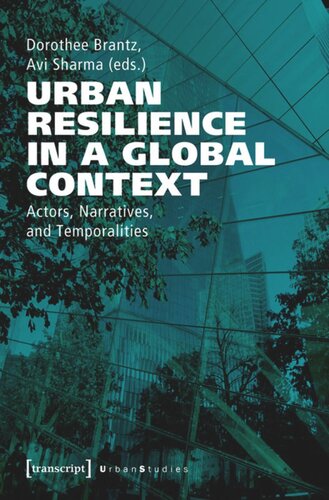

Most ebook files are in PDF format, so you can easily read them using various software such as Foxit Reader or directly on the Google Chrome browser.
Some ebook files are released by publishers in other formats such as .awz, .mobi, .epub, .fb2, etc. You may need to install specific software to read these formats on mobile/PC, such as Calibre.
Please read the tutorial at this link: https://ebookbell.com/faq
We offer FREE conversion to the popular formats you request; however, this may take some time. Therefore, right after payment, please email us, and we will try to provide the service as quickly as possible.
For some exceptional file formats or broken links (if any), please refrain from opening any disputes. Instead, email us first, and we will try to assist within a maximum of 6 hours.
EbookBell Team

4.3
88 reviewsUrban Resilience is seen by many as a tool to mitigate harm in times of extreme social, political, financial, and environmental stress. Despite its widespread usage, however, resilience is used in different ways by policy makers, activists, academics, and practitioners. Some see it as a key to unlocking a more stable and secure urban future in times of extreme global insecurity; for others, it is a neoliberal technology that marginalizes the voices of already marginal peoples. This volume moves beyond praise and critique by focusing on the actors, agendas, and narratives that define urban resilience in a global context. By exploring the past, present, and future of urban resilience, this volume unlocks the potential of this concept to build more sustainable, inclusive, and secure cities in the 21st century.